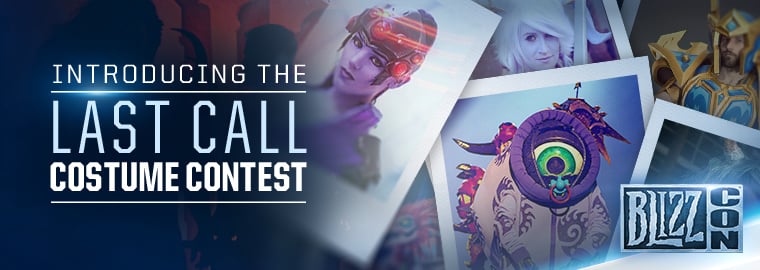Hey, gamers! Welcome back to the GameSkinny Writer’s Workshop.
After your last prompt, we took a short hiatus to give you guys a little break from all the fantastic writing you’ve been doing. But it now it’s time for another challenge!
Think of an article or post you’ve seen recently that you disagreed with. How can you respond to it articulately when you have a different opinion?
[Note: This week, the GSWW will run for two weeks. A lot of you are on vacation around this time, and we want to give everyone a fair chance to participate in this challenge.]
This one is going to be a little different from what we’ve been focusing on in recent challenges. We’re moving back toward argumentative writing, sort of like we did in challenge 1.3. The last time we discussed argumentative writing, I went over the most basic structure of an argument:
- Claim (this is your overall opinion)
- Reason 1
- Evidence (specific data or examples that support your reason)
- Reason 2
- Evidence
- Reason 3
- Evidence
But what if you’re not just stating your opinion? What if you’re responding to someone else’s opinion?
At some point or another, we all have to take a stand on something.
We all have (sometimes strong) opinions about certain topics, but we often don’t share those opinions because we risk alienating or offending other people. And sometimes we just don’t know how to express ourselves articulately – this is especially true in places like comment threads, where it’s really easy to get frustrated when other people won’t listen to what you’re saying (or it seems they’re just too dense to understand).
Rhetoric (read: persuasive writing) is an invaluable skill to have, but an unfortunately hard one to learn. There are a hundred (thousand) techniques that writers employ to persuade or convince their readers of something. Obviously, we can’t cover all of those, but we can give you some basic skills that will help boost your rhetorical skills to the next level.
You can finally leave opponents speechless in the comment threads!
This week, you’re going to write a response to an article that you disagree with.
Prompt: Using your rhetorical skills and the tips below, formulate a counter-argument to someone else’s opinion, and express that argument in a civil, articulate way.
Let’s take this recent comment from EA, for example. In a recent interview, an EA exec claimed that their games “were still too hard to learn,” and that players didn’t want to spend two hours getting the hang of a game.
If EA had written this in a blog post or something similar, we all know what that comment section would have looked like. It’s easy to default to insults and outright dismissal of someone’s opinion, but that won’t help them see your perspective. A sound and well-structured argument, however…those can pack a punch.
So how do you formulate a good response?
1. Remember basic argumentative structure.
That’s the bulleted list you see above. Basic argumentative structure relies on a main opinion (aka: thesis), followed by an outline of reasons and evidence that support that opinion. You state your main idea, you explain what major points lead you to have your opinion, then you support those reasons by citing specific evidence (this can be examples, quotes, personal anecdotes or data).
2. Back yourself up.
You wouldn’t go into a battle without ammo, would you? Then don’t go into an argument without evidence.
No one will take you seriously if you express an opinion that’s not founded in any kind of logic. If you keep Rule 1 in mind, this will follow naturally. Evidence can come from all kinds of places – specific data, research, past examples, personal experiences. If it supports your point, use it!
But also keep in mind that when using data, research, or other “hard” evidence, you should fact-check first to make sure you’ve got it right. The beauty and curse of the internet age is that anyone and everyone can double-check your claims in an instant, so it’s best to make sure you have them right the first time. Having to backpedal and eat your words seriously damages your credibility.
3. Maintain Civility & Composure
This is perhaps the most difficult part of counterarguing. Oftentimes, it feels as though the author (or in some cases, the commenter) just doesn’t get it. We want to shake them until they understand our point of view.
Good rhetoric requires patience and a backbone. You have to be willing to stick to your guns, even if there’s backlash from others. And you have to maintain composure if you’re going to argue well. Trying to express an opinion logically is difficult if you’re too frustrated or emotional – it makes you a reactive writer instead of a proactive one.
If you’re able to hold yourself together in spite of your feelings about the topic or about the conversation, you’ll continue to express yourself well. Which means others will be more receptive to what you have to say.
4. Acknowledge the Opposing Side
This may sound counter-intuitive at first – why would you ever want to acknowledge that your opponent has some good points? Answer: because it gives you more credibility. Pointing out the strengths in your opponent’s argument makes you seem more confident about your own side. It’s easy to tear differing opinions down, but acknowledging their logic and making a point in spite of it shows that you’re not intimated by few good ideas. And that will earn the respect of your audience.
But acknowledging the opposing side doesn’t always mean just pointing out the good aspects of their argument. Few things help you drive a point home more than poking holes in (or disproving entirely) and opposing opinion. If you see something in the opponent’s argument that is weak or outright wrong, point it out. But don’t be nasty about it – we’re not here to call names. Instead, acknowledge that your opponent has made an erroneous or ill-informed statement, then promptly (and civilly) explain why that statement is wrong and replace it with something more truthful/logical.
5. Know When to Walk Away
This is probably the most difficult thing to master. Oftentimes, when we feel strongly about something, it’s difficult to leave a debate without convincing the other party to see things the way you do. But remember, sometimes you simply cannot change someone’s mind. While your ultimate goal is, of course, to persuade your reader to agree with your opinion, not every reader is going to.
No matter what you say, no matter how logical or agreeable it is, someone is always going to disagree with you. So it’s best not to let scontinued opposition get to you. As long as you’ve presented your arguments articulately, the rest is out of your hands.
Mission Objectives
- Articles must be at least 150 words.
- Articles must display basic argumentative structure.
- Include a link to the article/post/comment that you’re responding to!
- Maintain your composure. Don’t rant or throw insults.
- Evidence, evidence, evidence.
- Fill out all parts of your Bonus Points tab.
- TAG YOUR POST’S BONUS POINTS TAB WITH THIS WEEK’S CHALLENGE TAG: GSWW 1.7
Remember to invite your friends to join our GSWW challenges!
And follow our tag, #GSWW on Twitter, Facebook, etc. for updates, hints, and questions.
Again, this week’s tag is: GSWW 1.7
(We can’t keep track of your piece if your tag isn’t there!)
The winner of this challenge will be announced during our live Twitch.tv GSWW stream. During these streams, I (your loyal weekend editor) will sit down with you all to workshop, promote, and feature some of your articles.
This week’s stream will go live Wednesday, April 8th at 9:00 pm EST. To watch, click here.
Good luck, gamers. And happy writing!




Published: Mar 31, 2015 10:58 am